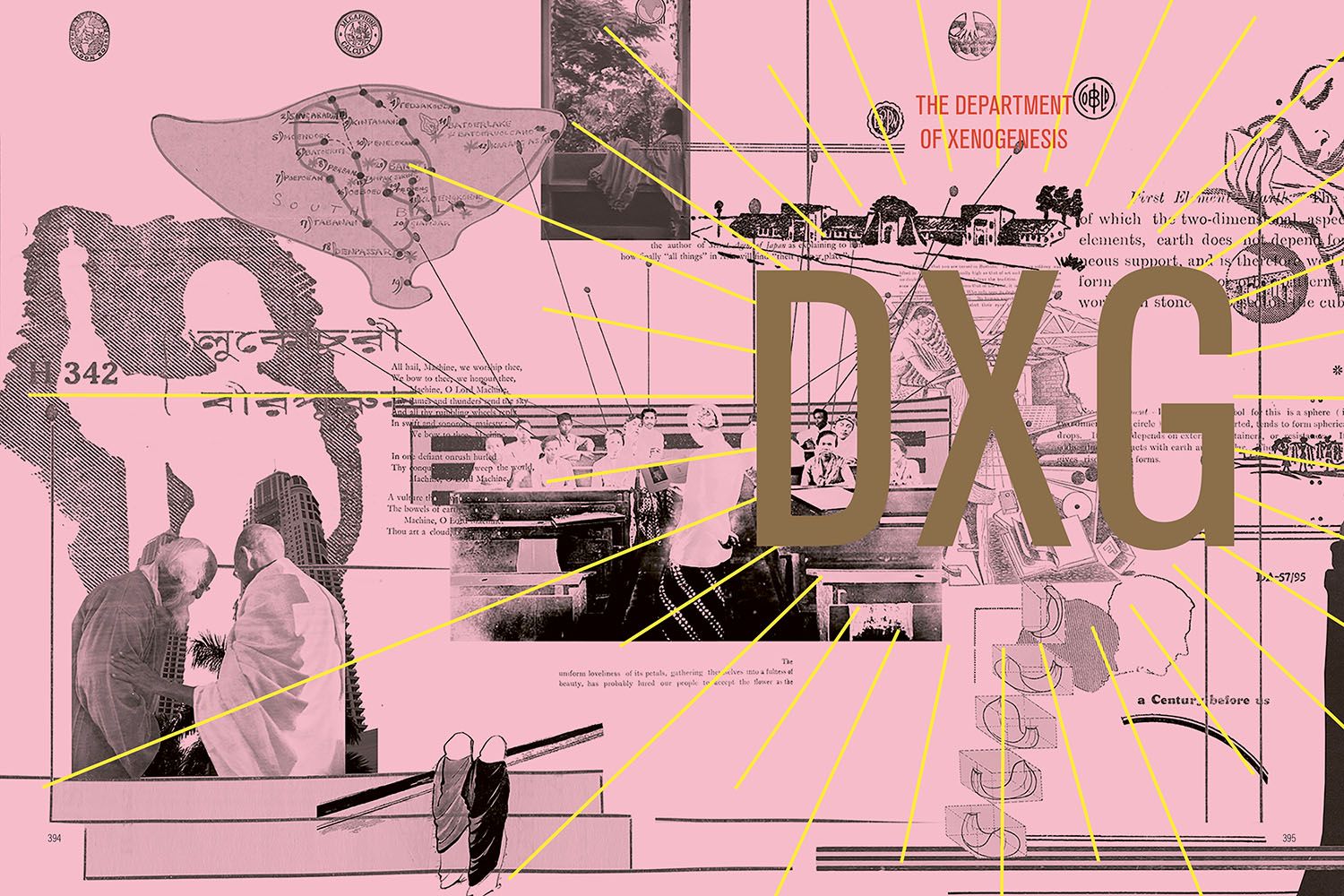( This website is in the process of being updated )
The Department of Xenogenesis (DXG), operates as an international mobile academy that subtends the ramifications and repercussions of the term Xenogenesis that was invented by the African American novelist Octavia Butler for her trilogy of science fiction novels Dawn, Adulthood Rites and Imago. By adopting Octavia Butler’s term we aim to develop its potential as a vector that opens onto what it might mean to gather, convene and study together transnationally with communities here, in-between and afar.
DXG offers a means of staying with preoccupations that Butler raises, such as: Questions of chronopolitics, matters of futurity, methods of science fiction, the desedimentation of Africanity, practices of black feminist study, projects of black study, the experiments of documentary engagement with alienation, the study of differing formulations of inhumanisms and contending notions of posthumanisms.
These interscalar questions can be rendered more concrete and yet more abstract by a close study of the specific writings of Octavia Butler and the long durée of her importance for communities of cultural workers musicians, artists, theorists and activists and 20th and 21st Century feminists whom have turned to moments within the novels of Octavia Butler in order to develop their own inquiries into the futures of biology, slavery, freedom, involuntary servitude, ontology and rationality, prediction, computability and machine intelligence.
At its core, DXG is a sustained engagement with Octavia Butler as a speculative thinker that used the generic conventions of science fiction as an narrative vehicle for a speculative inquiry into the denaturalisation of the human, the planetary, black female reproduction as the time machine for the afterlife of slavery, the extinction of the earth, the practice of the inexistent, the project of surrogacy as the revision of the human, the necropolitics of technofascism and the becoming black of the human.
Taking the writings of Octavia Butler seriously, devoting time and space to those writings and their implications, it becomes possible in the words of the writer Saidiya Hartman, to ‘tell an impossible story and to amplify the impossibility of its telling’.
DXG can also be thought of as a frame that that allows us time to think beyond the limiting and increasingly suffocating crisis that encloses the university today. DXG speculates on how a non-aligned curriculum that explores a cosmology of images, sounds, voices, gestures, expressions, noises, colours, essays, textures, spaces and silences might contribute to deprogramming the inherited orders of temporality, chronology and history that seek to manage and encourage the form of the present and the fate of the future.
